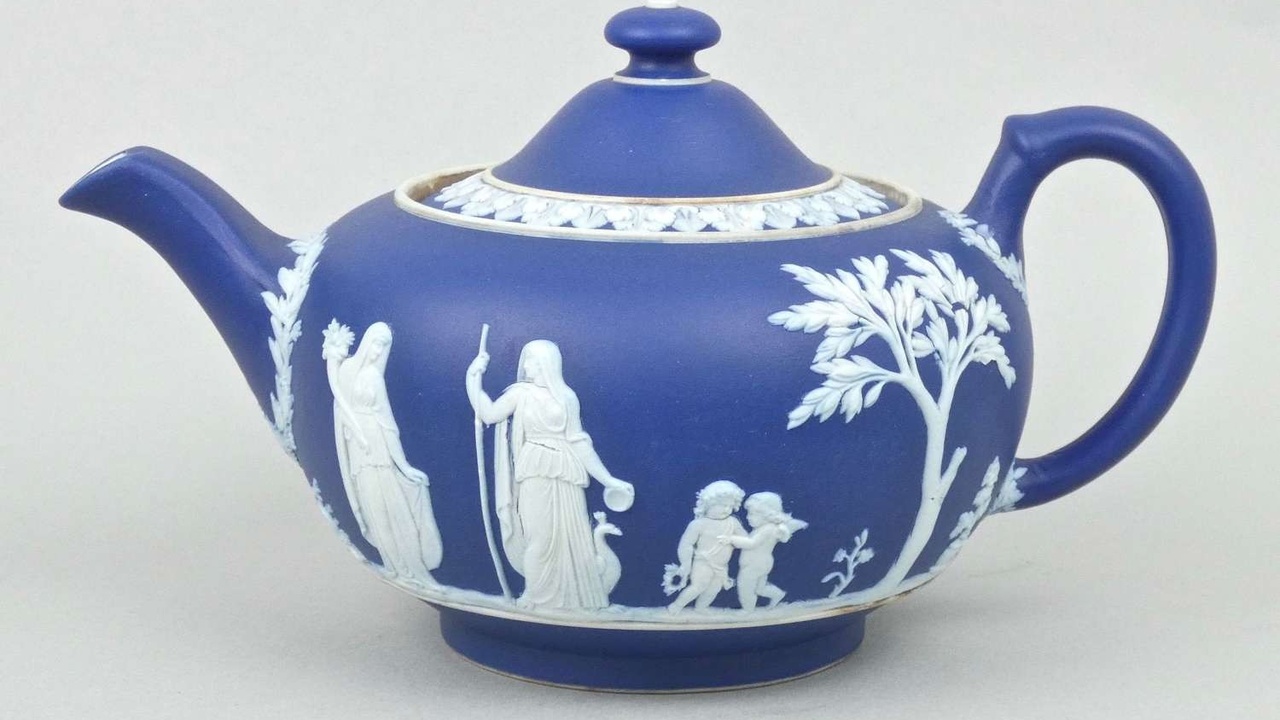On Getting Older: Collections vs. Experiences
Oct 11, 2022
Collections vs. Experiences
This is another topic that arises from my financial planning practice.
It is my generation’s habit to make collections of prized or valued items. To this day I have my book collection and my music collection. Mrs. Downing collects Wedgwood Blue Jasper (pictured here) – objects that really have no value apart from their beauty and the fact that viewing them gives pleasure. Dust collectors, you say? I’m sure the lady who comes to clean for us would rather we didn’t have this collection, but hey – that’s why we pay her.
Today’s generation is, I believe, more focused on experiences. Rather than collecting things, they value using their cash to gain experiences – whether travel, or simply a great night out with friends. And of course, all generalizations are faulty, including this one.
Buy or lease?
Case in point: to buy a Corolla, I might need to make a payment of $X. But for that same payment, maybe I can lease a Mercedes. Hmm. Much better experience. But at the end of the Corolla payment period I own the car for whatever its value – provided that it doesn’t get wrecked in Miami traffic in the interim. The liability is paid off, and the asset remains. But the lease? I paid for the use of the car, expecting no residual value. I paid for the experience of driving a luxury auto.
Quite parenthetically, my current Camry lease is coming up soon. I plan to purchase the car, and then turn around and sell it in this current used car market for a much higher price than my settlement price. Actually, I've done this more than once. In an inflationary period if the car is in good shape it will usually be worth more than the lease-end purchase price.
I can’t say one viewpoint is superior to the other. My books give me great pleasure – I still like to pull a volume down from the shelf and thumb through from time to time to find a particular passage. But will they eventually end up in a landfill? They mean pretty much mean nothing to anyone but me. Maybe some sentimental value to my daughters, but that’s about it. And even though I’ve culled the collection back each time we’ve moved throughout the years, there they are in the living room as I write this, awaiting the addition of the next few books I plan to order soon from Amazon. I will not read from an electronic device.
Generational understanding
Here's how my generation understands things: If I have $10 cash or $10 tied up in a book, my balance sheet still shows that same $10 asset. I have not decreased my net worth by transferring that $10 from one asset account, cash, to another asset account, collected books.
But if Instead I spend that $10 on an experience, I have no corresponding financial asset – my net worth has decreased. But there are such things as intangible assets – such as your professional education and ability to earn a living – though these don’t show up on a balance sheet. But experiences can be wonderful! and indeed, beyond price. In our early married life Mrs. Downing and I traveled to Europe several times. It was an inflationary period like now, with a very strong dollar, and long before the Euro. The dollar was extraordinarily strong relative to the European currencies, so it was super cheap to travel. Way cheaper than a trip to my wife’s home state of CA would have been. So we took advantage, and treasure those experiences to this day.
Then there’s the phrase, You have nothing to show for it. Its use: you spent all that money going to Europe and now you have nothing to show for it. True enough; nothing to show, but great experiences.
As I reflect on this generational difference, I guess that, as in most things, there’s a balance to be achieved, or a happy medium. Acquire some physical assets that will give you pleasure (paintings, sculpture, etc.) and may increase in value, because some day you may need the money. At the same time best not to neglect the wonderful experiences that are ours to be had in life.
Things can be lost but experiences are forever
One of the most influential and fascinating biographies I ever read was Life and Death in Shanghai, by Nien Cheng. She was a banker for a western bank, a woman of wealth, and parenthetically, a Christian. The communists imprisoned her for years, with no trial, until finally releasing her with no explanation. Her sort of conclusion to her life’s story: Every day I thank God for another day of experience and enlightenment. Well said. Things can be taken away and lost, but our experiences are with us forever, and we are the ones who choose our responses to the world.
Best to all,
--Glenn J. Downing, MBA, CFP®
Feel free to get in touch at [email protected]. Also follow me on LinkedIn, Facebook, and YouTube for more personal financial information relevant to you!
Stay connected with news and updates!
Sign up for our monthly newsletter for more personal finance and market insights.
We hate SPAM. We will never sell your information, for any reason.

